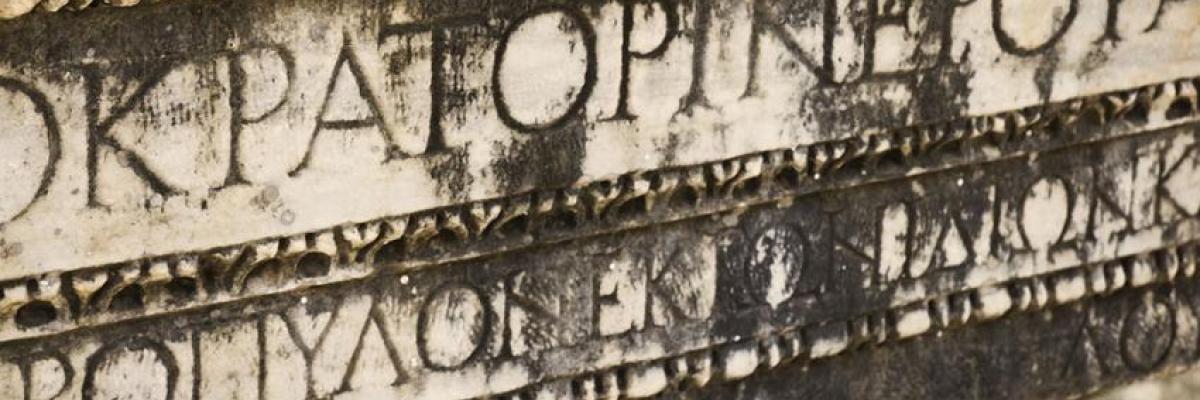
Greek

Ancient Greek is intrinsically beautiful in structure and sound, and it offers a unique portal to cultures and literatures that lie at the very heart of our own. It is, as Mr. Jefferson wrote, a “sublime pleasure” to read in their own language Homer and Hesiod, the first epic poets, Pindar and Sappho, the first lyric poets, Aeschylus, Sophocles, and Euripides, the first tragedians, Aristophanes and Menander, the first writers of comedy, Herodotus and Thucydides, the first historians, Plato and Aristotle who shaped the philosophical and political traditions for millennia to come, and, of course, Matthew, Mark, Luke, John, and Paul in the New Testament. Reading these authors in Greek is not only an aesthetic and intellectual pleasure, but it is the best way, in fact the only way, to come to a deep understanding of what they have to say to us.
Approaching these and other authors in their own Greek brings entirely new and different dimensions to our understanding and appreciation of their poetry, of their moral and philosophical views, of their innovative political theories and systems (including that of democracy), and of their conceptions of history, all of which have shaped the Western world and continue to shape our culture and values in the 21st century. It allows us better to recognize in what ways they were like us, and in what ways they were unlike us.
Mr. Jefferson learned Greek as a student and read it throughout he life. When he wished to understand Plato’s Republic, he read it in Greek. On the facade of Old Cabell Hall, facing the Rotunda, is inscribed:
ΓΝΩΣΕΣΘΕ ΤΗΝ ΑΛΗΘΕΙΑΝ ΚΑΙ Η ΑΛΗΘΕΙΑ
ΕΛΕΥΘΕΡΩΣΕΙ ΥΜΑΣ
“You shall know the truth and the truth shall make you free.”
Only by knowing ancient Greek can we fully comprehend what this “knowledge” really is, what this “truth” really is, and what this “freedom” really is, both in the traditions of its time in the first century A.D. when it was written, in the late nineteenth century when it was inscribed on Cabell Hall, and in our own time.
The Department of Classics offers the full range of undergraduate and graduate level Greek courses, from Introductory Greek to seminars at the Ph.D. level. Introductory Greek (GREE 1010) is designed for students wishing to pursue both classical and New Testament Greek. In the second year students may choose between year-long courses in either classical Greek, with readings in Plato, Herodotus, and Greek tragedy, or in New Testament Greek, with readings in the Gospels and Epistles. Students in classical Greek may then continue in the 3000 levels, and those interested primarily in the New Testament or the Church Fathers often have the opportunity to read with faculty from the Department of Religious Studies.
The Major in Classics with a concentration in Greek requires, in addition to six semester courses in Greek (above GREE 1020), a year of Latin and 12 additional credit hours. For the Minor in Greek four
semester courses (above GREE 1020) and a course in Greek history are required. Some of our Majors in Classics pursue some area of Classics as a career, but the large majority go on to careers in Law, Medicine, business, and a wide range of other fields.
The Department of Classics offers, in addition to language and literature courses in Greek, undergraduate courses in English translation on Greek Civilization, Greek Tragedy and Comedy, Greek Religion, linguistics, and a variety of other courses such as The Age of Odysseus, The Age of Pericles, and The Age of Alexander. In addition to the ten members of the Classics faculty, there are also nine faculty at UVa, outside the Department of Classics, who specialize in and teach undergraduate and graduate courses in Greek history, philosophy, political theory, religious studies, and art and archaeology and can often provide opportunities to read Greek authors in the original Greek or in translation.
The Department of Classics also makes available a scholarship for a Classics Major each year, for study abroad. Students interested in Greek and Greece often participate in the programs of the College Year in Athens or of the American School of Classical Studies in Athens.